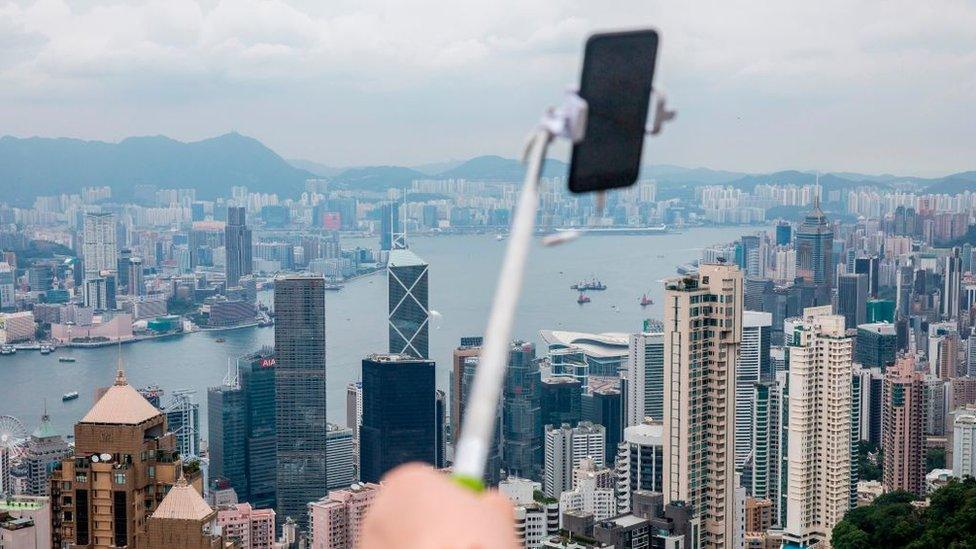Hong Kong protests: Police defend use of 'disguised' officers
- Published
Hong Kong police were filmed making an arrest with the help of a suspected undercover officer
Hong Kong police have admitted deploying officers disguised as anti-government protesters during mass unrest that rocked the city on Sunday.
Some officers disguised themselves as "different characters", a spokesman said, adding that the "decoy operation" had targeted "extreme violent rioters".
It comes after video surfaced showing suspected undercover officers making arrests during Sunday's clashes.
Protesters have called for an inquiry into the actions of the police.
Hong Kong's mass demonstrations and unrest show no sign of abating, more than two months after they were sparked by a controversial extradition bill that has since been suspended.
On Monday, protesters occupied Hong Kong's international airport forcing the cancellation of flights. Authorities say operations are now resuming at the airport, but some airlines have further cancelled hundreds of flights on Tuesday.
On Monday, in a news conference that was at times heated, Deputy Police Commissioner Tang Ping-Keung defended the use of the "decoy officers".
"I can say that during the time when our police officers were disguised... they [did not] provoke anything." he said. "We won't ask them to stir up trouble."
"Our operation... is targeting extreme violent rioters," he added. Mr Tang said police were responding to protesters who had used slings and hurled petrol bombs.
Allow X content?
This article contains content provided by X. We ask for your permission before anything is loaded, as they may be using cookies and other technologies. You may want to read X’s cookie policy, external and privacy policy, external before accepting. To view this content choose ‘accept and continue’.
What else did police say?
Assistant Police Commissioner Mak Chin-ho, who also faced a volley of questions about Sunday's violent scenes, said there was no evidence to suggest a woman had been shot by a police projectile.
Images of the woman, who was bleeding heavily from her eye, were shared widely on social media over the weekend.
On Monday, protesters at the city's international airport wore bandages over their eyes in response to the incident.
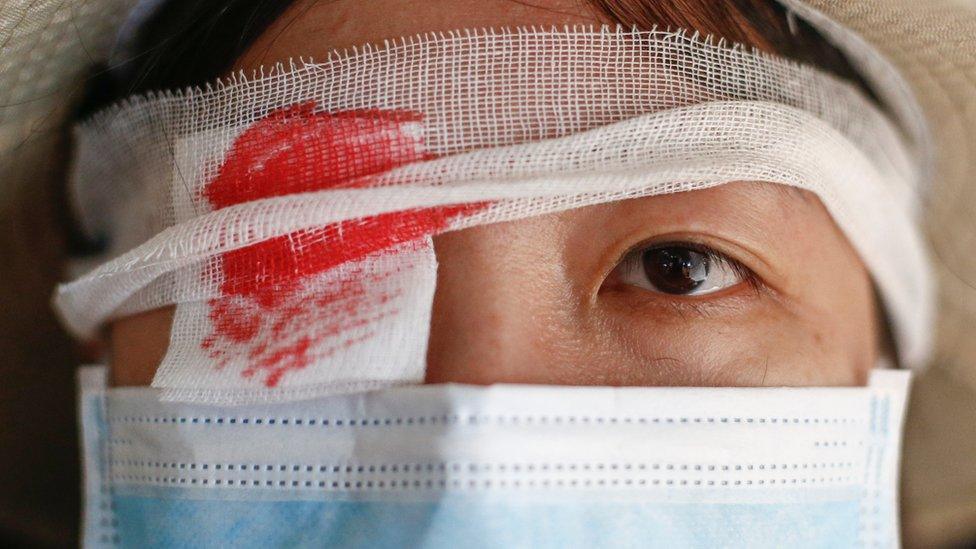
Demonstrators wore eye patches in reference to a woman who was injured on Sunday
There were confrontations in several central districts on Sunday and police used rubber bullets and tear gas in an attempt to disperse demonstrators.
Video also showed officers storming enclosed railway stations before firing tear gas inside and beating people with batons.
Violence erupts in HK train stations
A number of people, including a police officer, were injured in the clashes.
Mr Mak also defended the use of pepper ball rounds at close range, saying officers made a "split-second" decision to fire on protesters who had tried to flee.
Beijing officials strongly condemned Sunday's violence and linked violent protesters to "terrorism".
What else is happening?
The city's international airport cancelled all departures on Monday, as thousands of protesters occupied it and caused disruption.
More than 160 flights were cancelled and officials blamed "seriously disrupted" operations.
As rumours spread that police planned to move in on protesters in the evening, thousands opted to leave on foot at about midnight.
Early on Tuesday, the airport said operations had resumed but warned flights would still be affected.
Flagship carrier Cathay Pacific said more than 200 inbound and outbound flights were cancelled on Tuesday- with the airline blaming the "public assembly taking place".
Around 50 protesters remained camped in the terminals on Tuesday morning, while more than 100 passengers were spotted queuing up at a ticket counter, Reuters news agency reported.
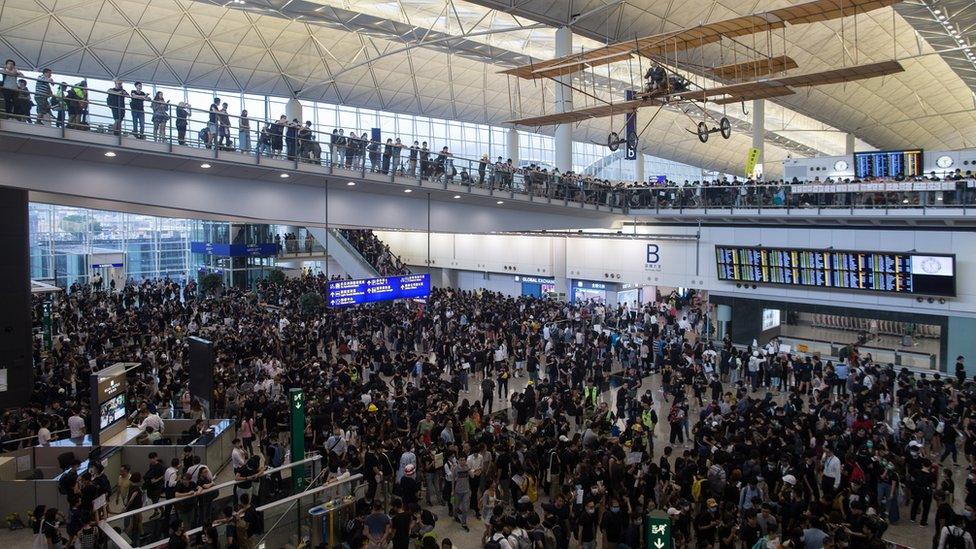
Officials say about 5,000 gathered for the fourth day of protests at the airport on Monday
One passenger, who wishes to remain anonymous, told the BBC they had been left stranded at the airport with "no food and no drinking water".
"We have been completely abandoned by the airport staff," they said. "People are sleeping on conveyor belts and hard floors."
Separately, Hong Kong police have also unveiled a water cannon vehicle as a new tool to combat the protests.
Why are there protests in Hong Kong?
Demonstrations started in June in opposition to a proposed extradition bill, which would have allowed suspected criminals to be sent to mainland China for trial.
Critics said it would undermine Hong Kong's legal freedoms, and could be used to silence political dissidents.
Although the government has now suspended the bill, demonstrators want it to be fully withdrawn.
Their demands have broadened to include calls for an independent inquiry into alleged police brutality, and an amnesty for all arrested protesters.
Hong Kong is part of China but its citizens have more autonomy than those on the mainland.
It has a free press and judicial independence under the so-called "one country, two systems" approach - freedoms which activists fear are being increasingly eroded.
- Published12 August 2019
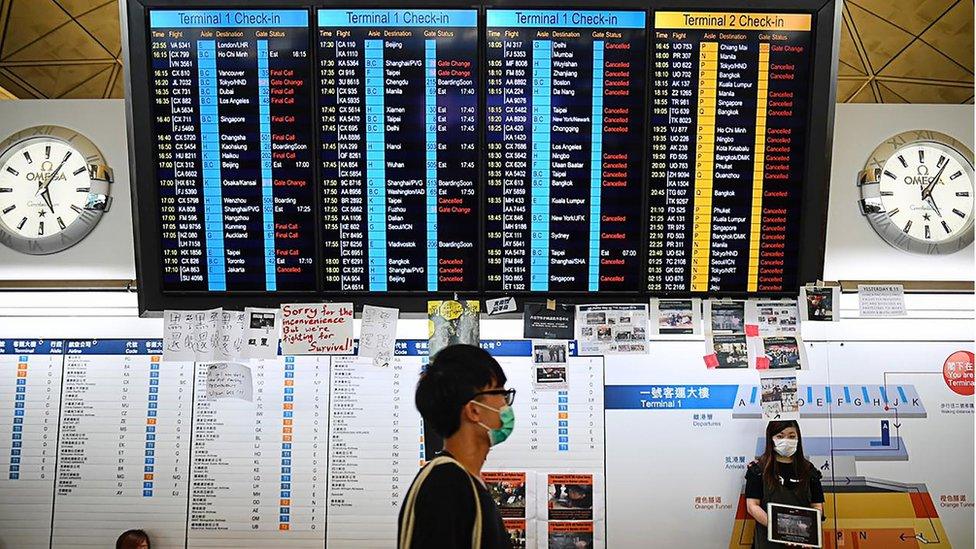
- Published12 August 2019
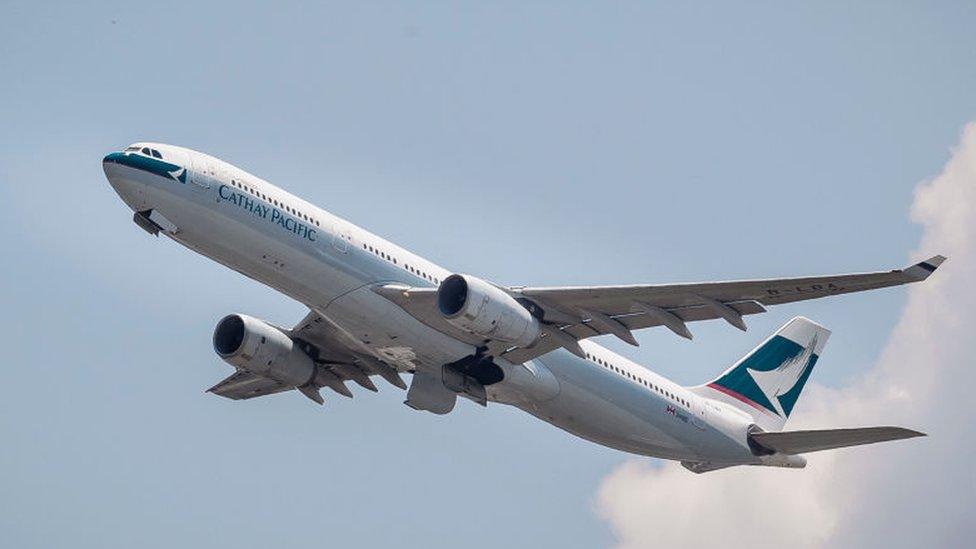
- Published12 August 2019
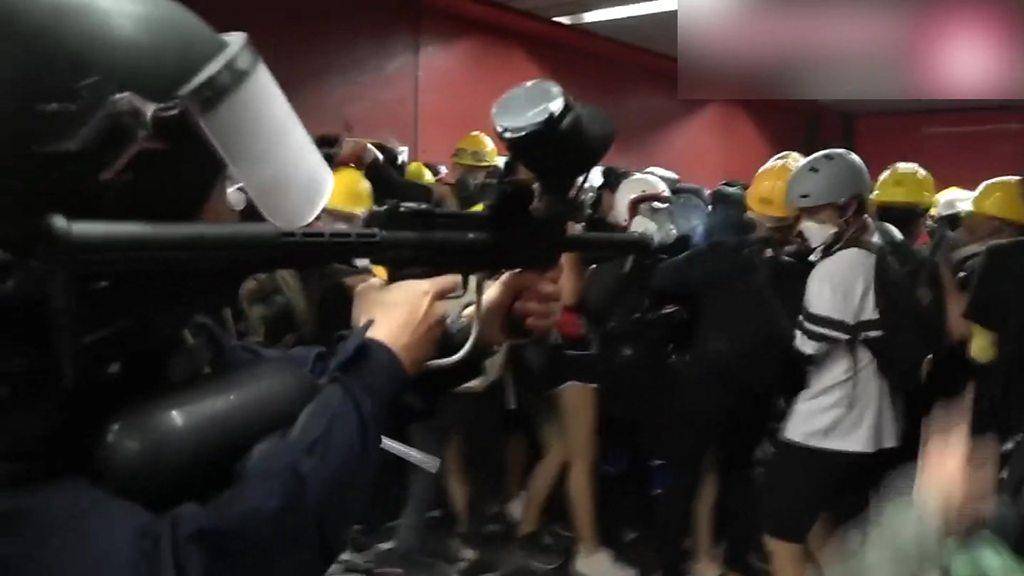
- Published5 August 2019
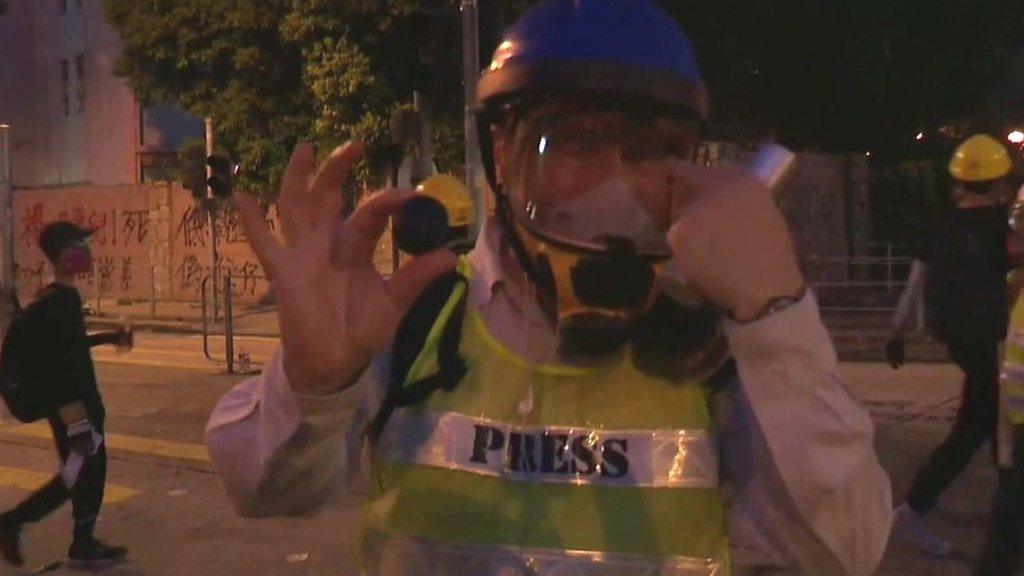
- Published12 August 2019
